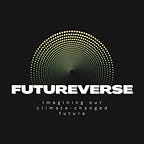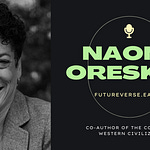In the latest episode of Futureverse, Molly Wood and Ramanan Raghavendran interview poet and author Janice Pariat. They chat about her latest novel, "Everything the Light Touches," and how her passion for nature and the environment has influenced her writing.
The conversation explores how resistance and the unpredictable nature of the universe are depicted in her novels and how indigenous cultures provide different perspectives on living in the world. Pariat reflects on the power of storytelling and hope in addressing climate change and emphasizes the importance of love, care, and taking a long-term approach to tackling the ecological crisis.
The full transcript is available by clicking above. This episode is also available on Apple Podcasts and Spotify.
Highlights
[02:10] Janice's Relationship with Nature and How it Influenced Her Writing
[10:35] The Need for Love and Care in Conversations about Climate Change
[13:48] Resistance and Arbitrary Orders
[15:07] Janice's Personal Experience of Belonging and Identity
[19:00] Janice’s Perspective on Climate Change and Deep Time
[23:37] Craft of Prose and Different Viewpoints When Writing
[34:57] Writing as an Act of Hope, Resilience, and Transformation
[37:39] Importance of Indigenous Stories and Their Wisdom
[39:33] Janice’s Book Recommendations













